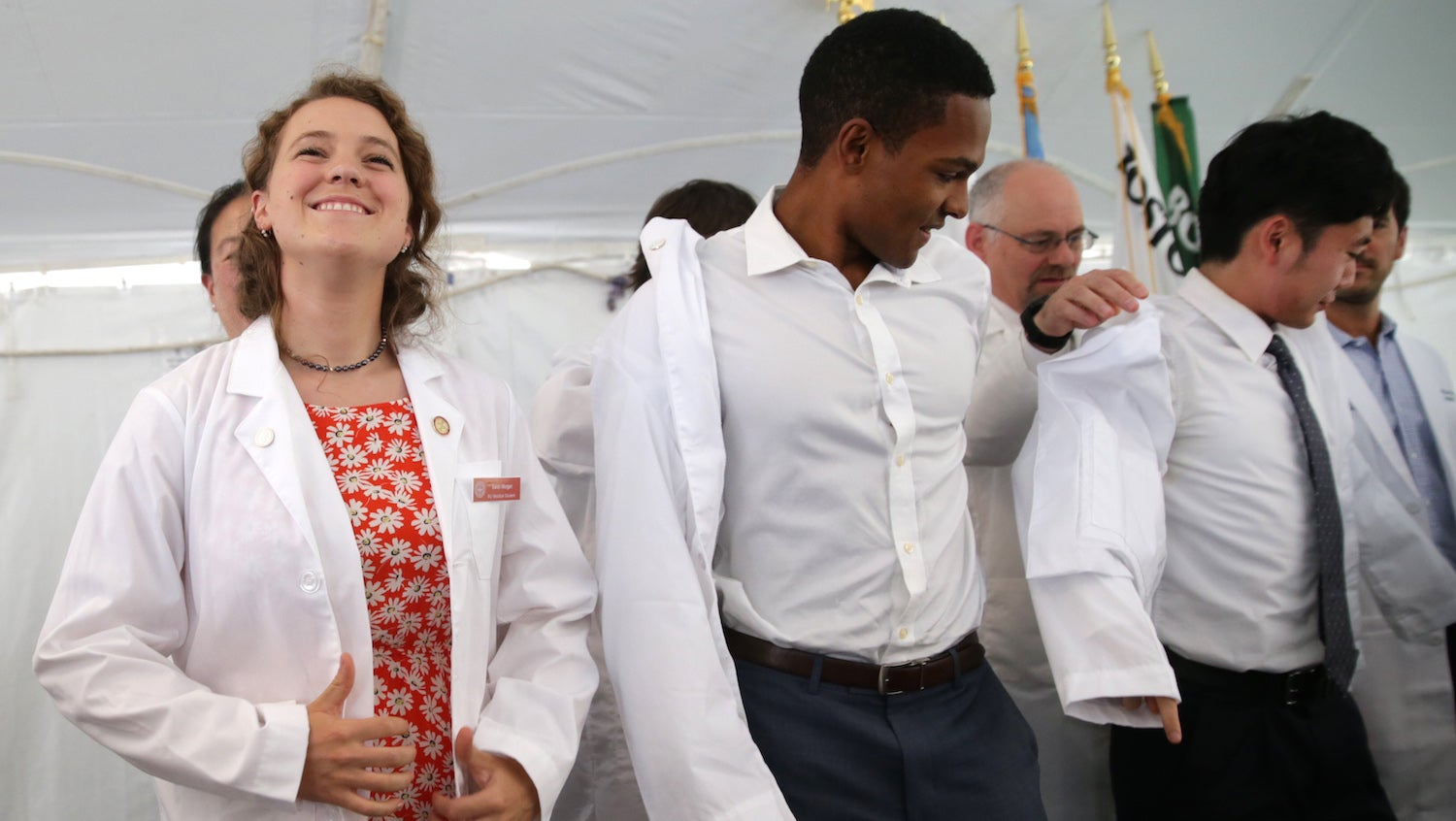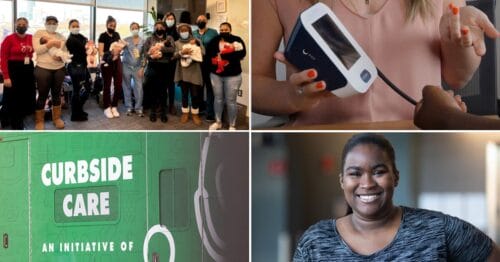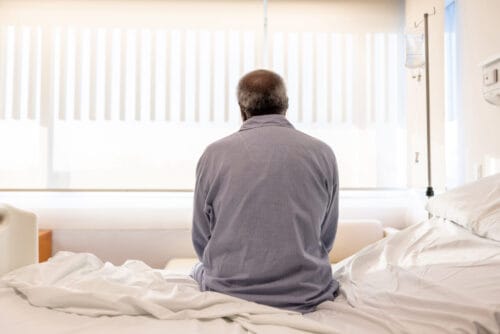
Getty Images
The Health Equity Symposium from Boston Medical Center serves as a call to look inward as a profession at equity, racism, and representation.
In pop culture and advertising, and arenas ranging from corporate America to politics, our society has made some highly visible strides toward greater diversity and representation. At the same time, the daily headlines highlighting persistent bias and barriers to full inclusion in the legal profession, Silicon Valley, and higher education remind us just how much work we have to do.
The health sciences are no exception. Over the past 10 years, to use just one measure, medical school matriculants have become slightly more diverse as a whole — but the change has happened very slowly, and incoming classes are still 60% white. A striking statistic like this could make the medical profession feel helpless, or it could serve as a call to action that prompts us to look inward and find new ways of addressing the issues of racism, representation, and inclusion within our own institutions.
That inward-looking philosophy is what drives the Health Equity Symposium, an annual event hosted by Boston Medical Center (BMC) and the Boston University Schools of Medicine and Public Health that aims to normalize and promote health equity as an integral part of medical education.
Now in its second year, the symposium focuses on advocacy, policy, education, and community engagement, as well as research that addresses health equity and the social determinants of health. This year’s theme is racism and representation. The collaboration and sharing at the symposium are designed to empower participants to bridge the gaps that impede the medical community’s progress toward greater cultural awareness and curiosity, beyond the single story.
Jennifer Siegel, MD, the medical director of Center for Transgender Medicine and Surgery and the director of the Urban Health and Health Equities Pathway in the internal medicine residency at BMC, is a co-director of the symposium. In the midst of putting the final touches on what promises to be a thought-provoking event, Siegel sat down with HealthCity to discuss the importance of creating new venues for discussing health equity.
HealthCity: What inspired the idea for a symposium dedicated to health equity?
Jennifer Siegel: BMC is a place that’s rich and filled with health equity work, but we don’t often have spaces and times to talk to each other and collaborate across the entire campus. Sometimes we literally don’t look across the quadrangle.
We got excited about the concept of a symposium because it could be one tool to bring together people who cared about health equity — in general, or as is the case this year, some specific sub-issues — and to really break down silos. There are people who are working on shared ideas around health equity, but maybe not in the same ways or in the same spaces. We really wanted to encourage this idea of diversifying what scholarship looks like in this area.
HC: Why did you choose racism and representation as this year’s focus?
JS: We very much picked the axis of racism and representation, rather than diversity in a broader sense, because there’s so much work and so much urgency in that area. On the planning committee, we had a few very freeform conversations about the most pressing issues. Pretty quickly, racism rose to the top of the list, given its profound importance, its visibility in the news media, and the experiences of a lot of people at the table who are affected by issues of diversity and inclusion within their own programs or workspaces.
We’ve talked a lot about diversity on racial lines, diversity on age and experience lines, and diversity on professional lines, so those three will come out pretty readily at the symposium. We’ve tried to make sure that we’re also having some gender diversity and other forms of intersectionality that relate to race, because obviously many of us are carrying multiple identities.
HC: What do you and your colleagues on the symposium committee consider the most urgent topics or priorities?
JS: In a set of fields where almost universally we don’t have the racial diversity and ethnic diversity that we would wish to have, we know we run the risk of tokenism — that people are the only one of X or Y or Z group being asked, sometimes overtly, to speak for the entire group. That’s a big problem that we definitely come across. Another issue that probably will come up at the symposium is the concept of minority tax. When we try to do this work, it tends to fall on some of the same individuals repeatedly, and not always in a paid way.
We talk a lot about diversity by the numbers, recruitment by the numbers — all of which are essential, but that’s the starting game. And we don’t talk enough about inclusion once people are here. What is it like to work here as a person who’s from an underrepresented racial/ethnic background, as a person from a sexual or gender minority? We could do more in that area.
The concept of the symposium has been to bring together the experts and the people who want to become experts in this area, but also to recognize that if all of us don’t develop some knowledge and expertise about these topics, we won’t move forward. I want to be very clear that I’m a learner on this topic as much as anybody.
HC: What would that look like if we don’t move forward? What do we stand to lose if we don’t put more weight behind tackling these issues?
JS: If we don’t support individuals in our community who are probably carrying more of the burden than average, then we risk all the usual issues in healthcare and burnout, but even more so. And then we’re going to be back to square one in a big way.
If we don’t continue to diversify our workforce, we’re not going to provide the quality of care that we want to provide — and there’s ample data out there to support that, across multiple axes of diversity. At BMC, we have the privilege and responsibility of caring for one of the most racially diverse networks of people in the city and region, yet are we as diverse and representative amongst ourselves as we could be? We still have much work to do to make sure that our patients and our communities are seeing themselves in the people who are working here.
So we risk patient care that won’t be as good and research that won’t be as diversified or as creative, answering questions that others aren’t thinking to ask. And people aren’t going to be happy in their jobs if you don’t create an environment that’s welcoming. That’s something I can say confidently.
HC: How do representation and cultural competency affect patient care?
JS: Cultural awareness — and I might even say cultural humility — may be more accurate than cultural competency, because I don’t think you really can become competent in somebody else’s culture. You can become competent in certain clinical skills or certain procedural things.
It’s this idea of awareness and learning from your patients, and starting to develop some sense of nuance and humility about what you do and don’t know about other cultures. There’s no question, from a patient-facing, front-lines perspective, that it’s so necessary.
A good example is blood pressure management. There are some guidelines out there based on race in a way that’s not totally biologically lined up. Having cultural awareness and fluency in these concepts means you can look at guidelines and research studies and be able to derive what’s valid, what’s helpful, and where we need to be asking the questions a little bit differently.
Humbling yourself to the fact that you will never know about all the cultural differences that walk into your clinic, and going in with a perspective of curiosity, is so critical. That’s the only way you can ever partner with people and make shared progress towards meeting a health goal or addressing an unmet social need.
This interview has been edited and condensed.


